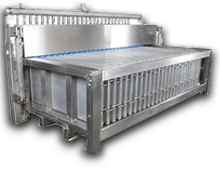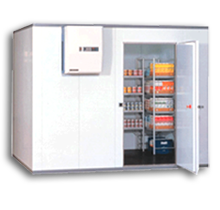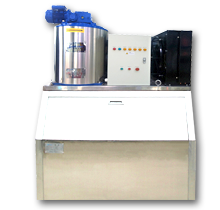The Interim Budget for 2024-25 allocated a sum of Rs.1.27 lakh crore for the Agriculture Ministry, marking an increase from the revised estimates of ₹1.16 lakh crore for 2023-24 and the budget estimates of Rs.1.15 lakh crore for the same period.
India’s Finance Minister Nirmala Sitharaman emphasised the government's commitment to enhancing value addition in the agricultural sector and elevating farmers' income, stating that efforts in this regard will be intensified. Sitharaman further stated that there will be investments directed towards post-harvest activities, encompassing aggregation, modern storage, efficient supply chains, primary and secondary processing, as well as marketing and branding.
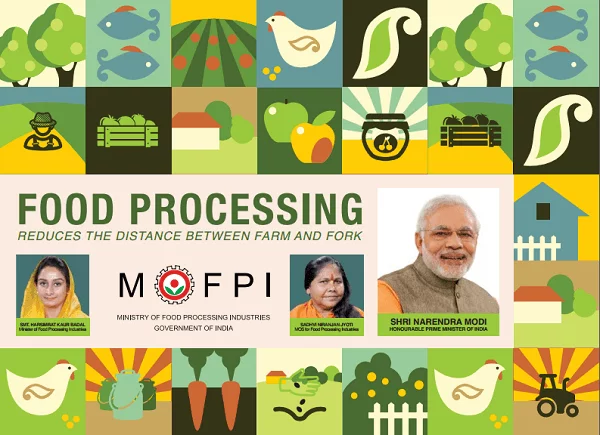
India, a significant agricultural producer, faces challenges with low value addition to its agricultural produce. In response, the Mega Food Park Scheme aims to elevate value addition through food processing while also tackling post-harvest losses and fostering rural employment. This initiative anticipates substantial benefits for the Indian economy, projecting an annual rise of Rs. 10,000 crores in agricultural produce value addition and the creation of job opportunities for approximately 10 lakh individuals. Additionally, the scheme targets a 20% reduction in post-harvest losses.
Positioned as a pivotal government endeavour to bolster food processing in India, the Mega Food Park Scheme is poised to deliver multiple advantages, including heightened agricultural value addition, diminished post-harvest losses, and augmented employment prospects in rural regions.
What Are Food Parks and Why Are They Popping Up Across India?
In 2008, the Ministry of Food Processing Industries (MoFPI) introduced The Mega Food Park Scheme (MFPS) to facilitate food processing in India. Since its inception, the MFPS aims to establish direct connection between farmers and processors, minimising food waste, and boosting the export of processed food products from India.
This initiative led by the government seeks to establish high-quality food processing infrastructure nationwide, including manufacturing units, cold storage facilities, packaging units, quality control laboratories, logistics support, and administrative services.
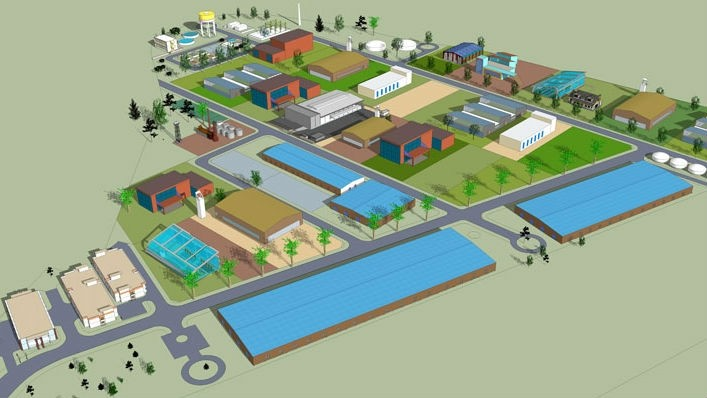
Food parks play a crucial role in enhancing the value of agricultural produce by offering facilities for processing, packaging, and preservation. This not only extends the shelf life of perishable goods but also boosts their marketability, leading to higher returns for farmers and agribusinesses.
The scheme operates with multifaceted objectives in mind. Firstly, it creates a direct linkage between agricultural production and market access by facilitating collaboration among farmers, processors, and retailers. This integration not only streamlines supply chains but also enhances market responsiveness to agricultural yields. Moreover, the MFPS elevates value addition within the food processing sector, thereby bolstering the economic viability of agricultural activities.
By promoting food processing activities, they contribute to rural development, stimulate entrepreneurship, and foster infrastructure growth. Moreover, food parks provide small and medium-sized enterprises access to modern infrastructure and market networks, enhancing their competitiveness domestically and internationally.
Food parks play a crucial role in enhancing the value of agricultural produce by offering facilities for processing, packaging, and preservation. This not only extends the shelf life of perishable goods but also boosts their marketability, leading to higher returns for farmers and agribusinesses.
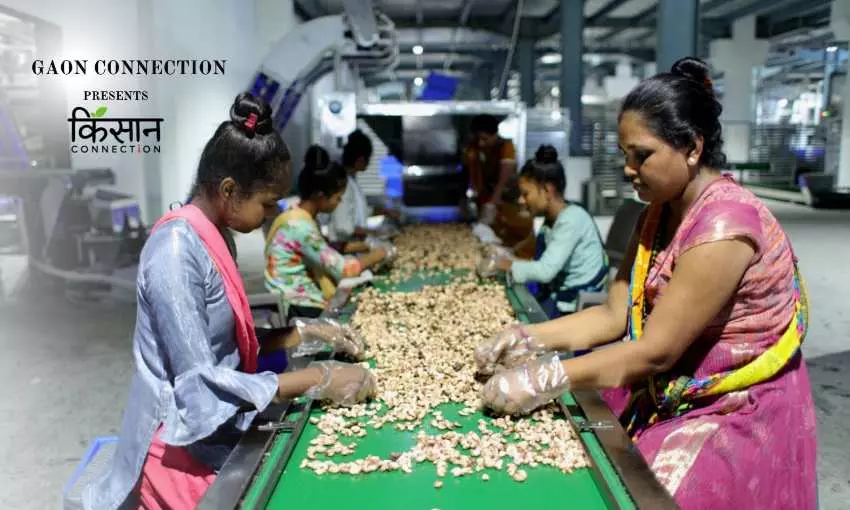
Know how “A Mega Food Park with Cold Storage Facility is Changing Lives of Tribal People in Mangrol, Surat” In this blog by Gaon Connection.
With over 24 mega food parks already operational across the nation and having collectively generated over 100,000 jobs, the MFPS stands as a testament to its transformative impact,creating a paradigm shift in India's food processing landscape.
The inaugural mega food park in India, Srini Mega Food Park, is situated in Chittoor, Andhra Pradesh. To facilitate the establishment of these mega food parks, the Ministry of Food Processing Industries (MoFPI) extends financial assistance to the consortium of companies. This assistance comprises both grants and loans, with grants totaling up to Rs. 50 crore and loans extending up to Rs. 200 crore. The consortium of companies is required to contribute the remaining funds.
The financial assistance provided by the MFPS, up to Rs. 50 crore per mega food park, is utilised for various purposes such as land acquisition, construction of infrastructure facilities like cold storage and processing units, marketing strategies, and training programs for farmers and processors.
As of March 2023, the government has approved 42 mega food parks, with 37 operational ones, generating over 1 lakh jobs and substantially aiding the growth of the food processing sector in India.
The MFPS has the potential to foster growth in the Indian economy, while improving the livelihoods of farmers and rural workers. Continued government support, and collaboration with the private sector are essential to realising this potential and driving innovation in food processing technologies.


